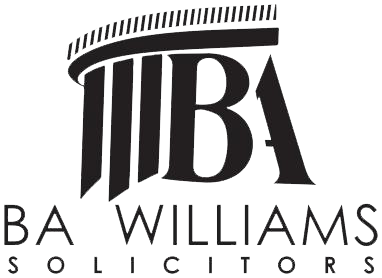The High Court recently examined an application concerning the possession and sale of a jointly owned property. This scenario arose from a case where one of the owners had been declared bankrupt due to unpaid council tax debts.
Background:
This case concerns an application by Mr. Armstrong, the Trustee-in-Bankruptcy for Mrs. Vanessa Temblett, who was seeking an order for possession and sale of a property in London which was jointly owned by Mrs. Temblett and her husband, Mr. Robert Temblett.
The bankruptcy proceedings originated from a debt of £15,007.79 owed to Bath & North East Somerset council for unpaid council tax on a long-vacant and dilapidated property in Bath, which Mrs. Temblett had inherited in 2006. The council had imposed a 300% empty property levy due to it being left vacant for over 20 years, its poor condition having caused numerous complaints.
Mrs. Temblett’s attempts to challenge the debt and subsequent bankruptcy proceedings have been marked by non-compliance and extraordinary, often conspiratorial, allegations.
The council issued a statutory demand in November 2018. Mrs. Temblett’s application to set it aside was dismissed in September 2019 after she failed to attend the hearing, with her husband attempting to represent her. Mrs. Temblett was made bankrupt on 22 July 2021. Following the bankruptcy order, Mrs. Temblett failed to complete a required questionnaire for the Official Receiver. This led to a warrant for her arrest and a suspension of her automatic discharge from bankruptcy in June 2022, neither of which has been remedied.
Mr. Armstrong was appointed Trustee on 15 July 2022. He sought access to and information about insurance for the vacant Bath property. Mrs. Temblett’s response was a series of lengthy, accusatory letters, claiming that the Trustee was engaging in “bullying and harassment” and “illegal collusion and corruption” with the Court, notwithstanding allegations of fabricating a narrative of non-compliance. She asserted that the Bath property was insured, yet provided no evidence and refused access to it. Due to Mrs. Temblett’s non-cooperation, the Trustee obtained a possession order for the Bath property on 7 October 2022.
Mr. Temblett attempted to set aside the possession order, claiming that Mrs. Temblett had received no formal notice. Mrs. Temblett herself then made an application to commit Mr. Armstrong for contempt of court. Mr. Armstrong’s solicitors raised concerns about Mr. and Mrs. Temblett’s well-being, noting that Mrs. Temblett had never appeared in court or for examination. They also sought directions to dispose of goods left in the Bath property, which Mr. and Mrs. Temblett refused to collect. Orders were subsequently made for the Trustee to dispose of these goods if not collected. The Trustee has now initiated proceedings for the possession and sale of the London property.
Decision:
The High Court granted possession and sale of the London property. The Judge firmly established that the bankruptcy order, made on 22 July 2021, is “extant and in effect until it is set aside”. This is a fundamental principle of law as, a court order, even if believed to be wrongly made, must be obeyed unless and until a higher court overturns it. The Judge cited the House of Lords case of Isaacs v Robertson [1985] AC 97 and Re Mid East Trading Ltd. [1998] BCC 726 to support this point. Therefore, Mrs. Temblett’s repeated assertions that the underlying council tax liability orders were illegally charged and that the bankruptcy was “unproven” were disregarded because these orders had not been set aside through proper legal channels.
Upon the making of the bankruptcy order, Mrs. Temblett’s joint beneficial interest in the London property was automatically severed. Her beneficial interest automatically vested in the Trustee-in-Bankruptcy immediately upon his appointment, without any need for further conveyance or transfer. This is a direct consequence of Section 306 of the Insolvency Act 1986.
The Judge explicitly noted that Mrs. Temblett’s “consistently non-cooperative and obstructionist” conduct, including her “mass of correspondence, threats, allegations,” and repeated failures to attend court, had “increased the costs unnecessarily” and “impeded the Trustee from administering and winding up the bankruptcy estate in a cost-effective and timely manner”. The Judge pointed out that the bankruptcy could have been avoided by paying the initial council tax debt, or by paying the debt at various later stages.
Implications:
This case serves as a stark reminder that a co-owner’s bankruptcy has immediate and profound effects on jointly held property. The judgement explicitly reiterates the immediate legal consequences of bankruptcy, as joint tenancy of the beneficial interest is automatically severed, and the bankrupt’s share automatically vests in the Trustee-in-Bankruptcy per Section 306 of the Insolvency Act 1986. At such a point, there is no need for any formal conveyance.
The case highlights the immense costs and delays that can be incurred by extreme, unmeritorious, and obstructive conduct by bankrupts and their associates. Despite the delays, the Court ultimately upheld the Trustee’s rights. As the Judge pointed out, those costs could have been avoided by paying the initial debt.





